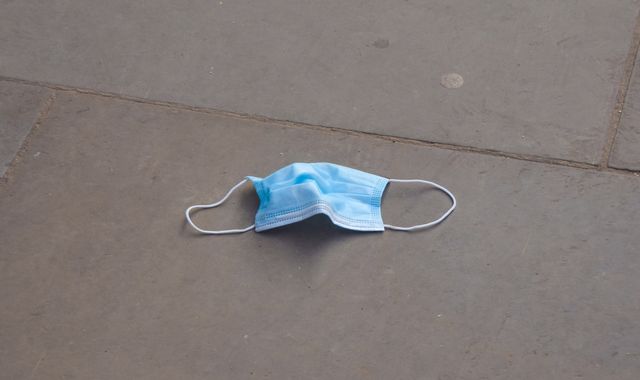Endurance cyclist Mike Hall’s death avoidable, says Australian coroner
Written by News on 01/03/2019
The death of a British endurance cyclist during a 3,500-mile race across Australia was avoidable, a coroner has concluded.


Mike Hall, 35, died almost instantly after being struck from behind by a vehicle on a stretch of the Monaro Highway about 25 miles south of Canberra in the early hours of 31 March 2017.
Coroner Bernadette Boss said the sportsman’s death should be a “catalyst for change” to improve safety for cyclists on the country’s roads.
She also said it had been “regrettable” that mistakes in how Mr Hall’s clothing was handled by investigators meant the investigation into his death had been “to some degree” compromised.
The coroner described Mr Hall, originally from Harrogate, North Yorkshire, as an “exceedingly experienced ultra-endurance cyclist” who was “rated as being one of the most experienced in the world”.
The cyclist had set off from Fremantle in Western Australia on the morning of 18 March with other endurance riders to tackle the gruelling Indian Pacific Wheel Race.
Twelve days and about 3,000 miles later, he had crossed most of the continent to reach Cooma in New South Wales and was second in the competition.
Competitors, riding unsupported, were expected to finish the race in 14 days.
Mr Hall was cycling along the Monaro Highway, which had a 100kmh (62mph) speed limit, shortly before 3am on 31 March.
At around 6.20am he was hit by a car in the northbound lane of the road, which had narrowed near an intersection.
At first the driver of the car was unaware he had struck a cyclist, thinking he had hit a kangaroo until he found Mr Hall’s bike embedded in the passenger side headlight.
The corner noted there was no evidence that the driver had been driving furiously, recklessly, or with alcohol or prescribed drugs in his system, the coroner found.
Mr Hall had suffered multiple injuries to his head and intracranial contents, fracturing of the spine, and multiple chest and abdominal injuries and his death had been “almost instantaneous”, a post mortem concluded.
Investigators found that while Mr Hall’s rear light, which was operated by a dynamo and did not flash, was compliant with road safety laws, it would have been difficult for the driver to see.
The investigation also found that the continuous light could have been misinterpreted by a driver for the static red reflectors on the road’s guideposts.
It concluded that the design of the road and its shoulder made it unsuitable for cyclists, especially at night.
Mr Hall had been wearing dark clothing with reflective panels, although the items were not dealt with in accordance with normal police procedures for retaining evidence so their reflective properties could not be tested, the inquest heard.
Dr Boss said: “Mr Hall’s death was avoidable, which makes the loss of this remarkable person even more keenly felt by his family and the community.
“It is unfortunate that the investigation into his death has been to some degree compromised by the loss of significant evidence in the form of his clothing and bicycle accoutrements.
“There is, however, sufficient evidence for his death to be the catalyst for changes that will enhance rider safety into the future.”
Six recommendations were made by the coroner, including a call for the Australian Capital Territory and other state governments to amend laws that would require a cyclists to use a flashing rear light when driving in low-light conditions on rural roads.
Dr Boss also said Australia’s national standards body should review rules on lighting equipment for bikes and referred the matter to the Australian Federal Police to review if any offence had been committed.
(c) Sky News 2019: Endurance cyclist Mike Hall’s death avoidable, says Australian coroner






